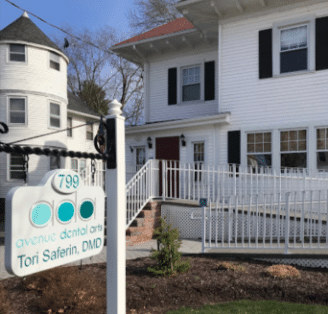Our dental health, as well as the care that is needed in order to maintain and protect our dental health, is one of the many things that changes as we age. Despite the fact that we may wish to prevent any of these dental health changes from occurring, many of them are considered normal and natural. Fortunately, by understanding why these changes occur and how we can minimize the undesirable effects of these changes, we can ensure that we age gracefully.
Understanding Aging and Tooth Loss
According to the American Dental Association, roughly twenty-five percent of all seniors over the age of sixty-five have lost all of their natural teeth. Needless to say, individuals who fail to maintain good oral hygiene habits throughout their life and especially as they age are more likely to experience tooth loss issues than those who do maintain good oral hygiene habits. However, even those individuals who rigorously brush their teeth twice or more each day, floss once or more each day and visit their dentist for examinations and professional cleanings at least twice a year can still experience tooth loss issues as they age. But why is this? And more importantly, can anything be done to stop it from happening to you?
There are many reasons for why seniors can experience tooth loss issues, but one of the leading reasons is gum recession. Put simply, gum recession occurs when the amount of gum tissue surrounding your teeth begins to deteriorate and the gum line pulls back, exposing more of the tooth and its roots. When your gum line remains tightly in position, it is essentially impossible for gaps, or periodontal pockets, to form between the gums and the teeth. However, when the gum tissue deteriorates and pulls back, it leaves room for periodontal pockets to form. These pockets capture leftover food particles and harmful oral bacteria, and this can lead to the development of gum disease. When gum disease is left untreated, even for a short period of time, it can result in the damage of supporting bone structures and soft tissues, which then leads into tooth loss.
Gum recession is actually an incredibly common condition, but it occurs so gradually that many individuals don’t even recognize it is occurring unless their dentist points it out to them. Tooth sensitivity to hot and cold drinks and foods is actually an indication of gum recession, but many individuals simply turn to toothpastes and mouthwashes designed to address this problem rather than digging down to the root of the problem and resolving it. Fortunately, gum recession can be successfully addressed if treated early on.
In addition to taking quick action to address gum recession issues by visiting your dentist at least twice every year as well as whenever you experience any unusual and uncomfortable dental situations, there are things you can do to help prevent gum recession from occurring. Some of the common causes of gum recession include:
- Periodontal disease. Regularly brushing and flossing your teeth, using the techniques described by your dentist, and visiting your dentist at least twice a year can help to prevent periodontal disease from occurring.
- Brushing too aggressively. While brushing your teeth well at least twice a day is important to good dental health, brushing too aggressively can actually damage the gum line, causing it to become inflamed and then recede.
- Tobacco use. Individuals who use tobacco tend to experience greater plaque buildup on their teeth, which can then lead to gum recession and gum disease.
- Bruxism. Bruxism, or teeth clenching and grinding, can place undue pressure on the gums and cause gum recession.
- Crooked teeth. Teeth that are crooked can also place undue pressure on the gums and cause gum recession.
Aging Gracefully
Though it is very common for tooth loss to occur as people age, there is no reason one has to accept this as an unavoidable fact of aging. By working closely with your dentist, you can ensure that your dental hygiene habits and dental health remain as ideal as possible.
For more information about how to protect your oral health and prevent tooth loss as you age, contact your dentist, Dr. Saferin, today.


